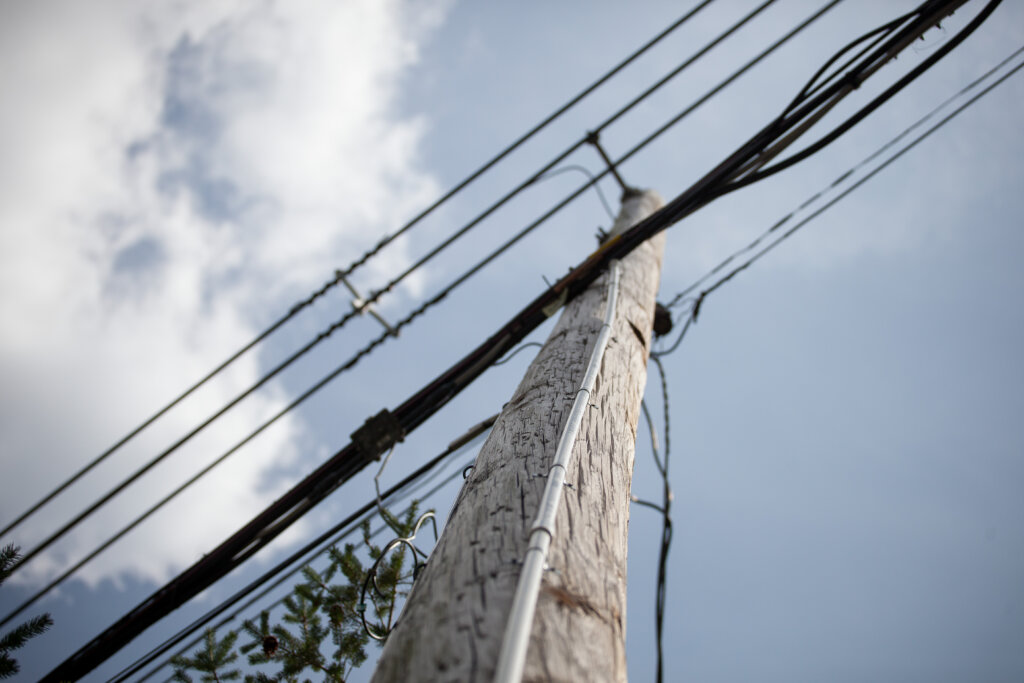Why that New York Times article on the Brooklyn eruv is sparking controversy
Jews are upset at coverage they see as othering Orthodox Judaism

Graphic by Angelie Zaslavsky
On Shabbat, religious Jews cannot carry anything — a loaf of challah, an extra jacket, even their baby — thanks to a biblical law that prohibits carrying things in the public domain. Unless, that is, there’s an eruv, a thin piece of wire or fishing line strung up around an area, designating the ground within it “private domain” akin to the home.
Thursday morning, The New York Times published a piece on the expansion of the eruvs in Brooklyn; nearly the entire borough is now contained within an eruv. The project has been in the works for years, and is a groundbreaking work of cooperation and affirmation of community between the different Jewish communities that live in Brooklyn.
But the response to the Times piece has been less than glowing. By early afternoon, a few hours after its publication, there were over 600 comments on the article, many of them criticizing Hasidim, Judaism and religion at large. Jews responding to the piece, meanwhile, complained that the Times was inviting antisemitism by framing the practice as strange.
“Stringing fishing line around Brooklyn to exploit a loophole in a rule strikes me as even nuttier than the rule itself,” reads one comment, a common sentiment. “Rules made by men to control. Hiding behind religion, like most fanatics,” says another.
Others attacked Orthodox Jews for political reasons. “The eruv boundary is also symbolic of the sphere of influence the Hasidic community has on politics and the criminal justice system. Just like most non-Jews barely notice the thin wire strung above their heads, they also barely notice how their tax dollars are being used to support a large religious sect and enrich some,” reads one angry comment. “This fraud and special accommodations has to stop.”
Many Jews online have criticized The New York Times for its coverage of Hasidim, particularly since its investigation into the Hasidic education system, and on Twitter, numerous Jews are upset about the Times coverage of the eruv expansion.
The article, by Joseph Berger, explains what an eruv is, and details the activities forbidden without one, which include pushing strollers. It also details the construction process of the larger Brooklyn eruv, including the materials the eruv is made from, its funding — $250,000 of community funds — and its official approval from city government. It’s well-researched and thorough, but written for the layperson unfamiliar with Jewish law and ritual.
Some object to the newspaper’s tweet that characterized the eruv as an exception or loophole in religious law. The wording lends credence to comments insinuating antisemitic ideas about Jewish trickery and dishonesty, such as one claiming that eruvs are “a practice lacking even a shred of integrity,” which “is not an isolated example within Jewish ritual practice.”
(The article brushed past the fact that many observant Jews already do not abide by the existing, smaller eruvs in Brooklyn, nor will they carry things within the new, larger one; a brief search brings up innumerable esoteric debates over the finer points of Jewish law around eruvs, to which an entire tractate of the Talmud is devoted.)
Others pointed out that the article didn’t frame eruvs, and other elements of ritual law, as deeply connected to Jewish values, instead focusing on the strangeness of the practice to outsider readers. Eruvs are “a way to expand your home and a way to make your community more inclusive and take on the qualities of a home,” commenters pointed out, and the expansion doesn’t reflect a widening loophole, but instead an expansion of the concept of community and home.

Eruvs are nearly always a contentious topic, and not only within the Jewish community. Eruv construction expands the area in which observant Jews can comfortably live, meaning that more Jews may move to the area, an outcome which upsets anyone prejudiced against Haredim, or Jews more generally.
And then there are the people who simply find the practices of Orthodox Judaism strange, old-fashioned and off-putting. (This is likely one of the factors in society’s fascination with TV shows about Haredi Jews.) If you don’t believe in God or value tradition, then structuring life around religious laws will always appear absurd or insane.
But the critics are not necessarily antisemites; to some of them, all religion is mumbo-jumbo meant to oppress people, which is a legitimate belief for any individual to hold. After all, if we want freedom of religion, that includes freedom to reject it. Is it helpful to express these opinions in the pages of The New York Times when speaking about a vulnerable community? No. But when has such a consideration ever stopped someone on the internet?
As for the real antisemites in the article’s comments, well, speaking about Jews in pretty much any way in the public sphere attracts antisemites. I can tell you from experience that when I write glowingly positive articles about Jewish practices, antisemites fill my inbox. If I’m writing positively about the Haredi community, I hear from secular and liberal Jews who disapprove of strict orthodoxy.
The article on the Brooklyn eruv could have been more nuanced, sure, and paid more attention to the positives of religious Jewish observance instead of focusing largely on its limits. But the real question is: Is it possible to write about Jews without inviting antisemitism? In the days of the internet, the answer may be no.

















